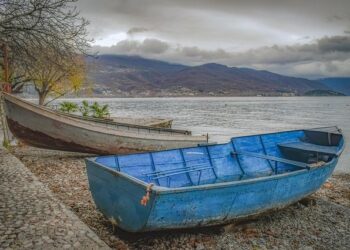North Macedonia stands at a critical crossroads in addressing longstanding challenges related to the human rights of its Roma community and environmental protection. Despite formal commitments made on the international stage, significant gaps persist between policy promises and everyday realities faced by these vulnerable populations. Recent assessments by the Council of Europe underscore the urgent need for the North Macedonian government to translate its pledges into concrete action, ensuring not only legal safeguards but also tangible improvements in living conditions and environmental sustainability. This article explores the current state of affairs, the obstacles hindering progress, and the imperative for North Macedonia to bridge the divide between its commitments and on-the-ground realities.
North Macedonia Faces Mounting Pressure to Address Human Rights Violations Against Roma Community
The ongoing challenges faced by the Roma community in North Macedonia highlight a glaring disconnect between governmental declarations and tangible improvements on the ground. Despite numerous commitments made to uphold human rights and environmental stewardship, systemic issues such as discrimination, inadequate access to basic services, and environmental neglect continue to disproportionately impact Roma neighborhoods. Authorities are urged to implement effective policies that not only acknowledge these problems but also actively dismantle the barriers facing this marginalized group.
Key areas identified for urgent intervention include:
- Improved access to clean water and sanitation in Roma settlements
- Inclusive education programs to combat segregation and promote equality
- Environmental protection measures that address hazardous living conditions
- Legal frameworks to ensure accountability and nondiscrimination
| Priority Area | Current Status | Required Action |
|---|---|---|
| Water & Sanitation | Limited access in 40% of Roma communities | Infrastructure development and regular monitoring |
| Education | High dropout rates and segregation issues | Inclusive curricula and support programs |
| Environmental Safety | Proximity to polluted areas | Relocation plans and cleanup initiatives |
| Legal Protections | Gaps in implementation and enforcement | Stronger policies and community engagement |
Urgent Reforms Needed to Align Environmental Policies with International Standards
The persistent disparities between North Macedonia’s environmental policies and internationally recognized human rights standards highlight the urgent need for comprehensive reforms. Despite formal commitments on paper, Roma communities continue to face disproportionate exposure to environmental hazards, such as inadequate waste management and limited access to clean water. Addressing these issues requires not only legislative adjustments but also the implementation of effective monitoring mechanisms to ensure that strategies are translated into tangible improvements for vulnerable populations.
Key areas for immediate action include:
- Establishing community-led environmental monitoring programs in Roma settlements.
- Integrating human rights principles into environmental impact assessments.
- Improving inter-agency coordination to enforce compliance with environmental regulations.
- Ensuring transparent reporting aligned with Council of Europe recommendations.
| Area of Concern | Current Status | Recommended Reform |
|---|---|---|
| Waste Management | Limited access in Roma settlements | Targeted waste disposal infrastructure |
| Water Quality | Frequent contamination reports | Regular water safety audits |
| Legal Enforcement | Inconsistent application | Strengthened regulatory oversight |
Experts Call for Transparent Implementation and Stronger Accountability Measures
The ongoing challenges faced by the Roma community and the precarious state of environmental protection in North Macedonia have ignited urgent calls from experts for a more transparent and accountable approach in policy implementation. Authorities are urged to move beyond rhetoric, ensuring that commitments translate into tangible actions. This includes regularly publishing detailed progress reports and establishing independent oversight bodies to monitor government initiatives in these critical areas. Transparency, experts insist, is pivotal to rebuilding trust and encouraging active participation from civil society.
Accountability mechanisms must be significantly strengthened to guarantee that violations and negligence do not go unchecked. Suggested measures entail:
- Mandatory public audits of funding allocated to Roma inclusion programs and environmental projects.
- Legal enforcement frameworks that hold officials responsible for failing to meet human rights and environmental standards.
- Community-driven complaint systems giving marginalized groups a direct voice in addressing grievances.
| Measure | Expected Outcome | Timeline |
|---|---|---|
| Public Progress Reports | Enhanced transparency and stakeholder engagement | Biannual |
| Independent Oversight Body | Objective monitoring and accountability | Within 6 months |
| Legal Enforcement Frameworks | Deterrence of rights violations and environmental harm | 1 year |
The Way Forward
As North Macedonia continues its path toward greater European integration, bridging the gap between its commitments and the realities faced by Roma communities and environmental protection remains a critical challenge. The Council of Europe’s recent assessments underscore the urgent need for comprehensive action to ensure that human rights are not only promised but fully realized on the ground. Moving forward, sustained political will and targeted policies will be essential for North Macedonia to uphold its international obligations and foster a more inclusive and sustainable future for all its citizens.















